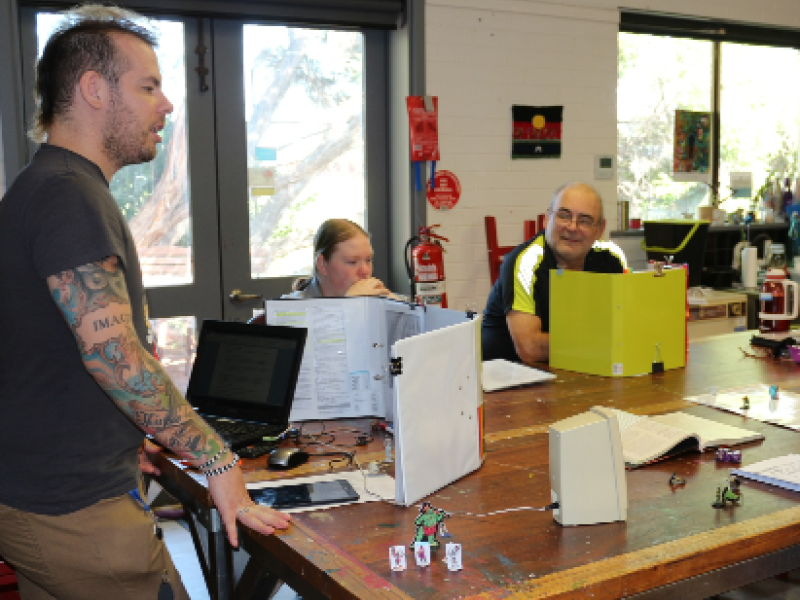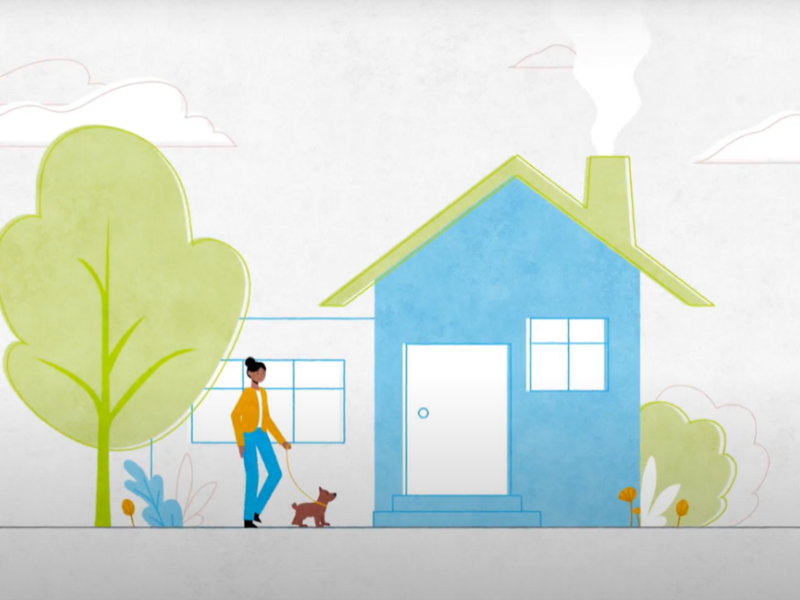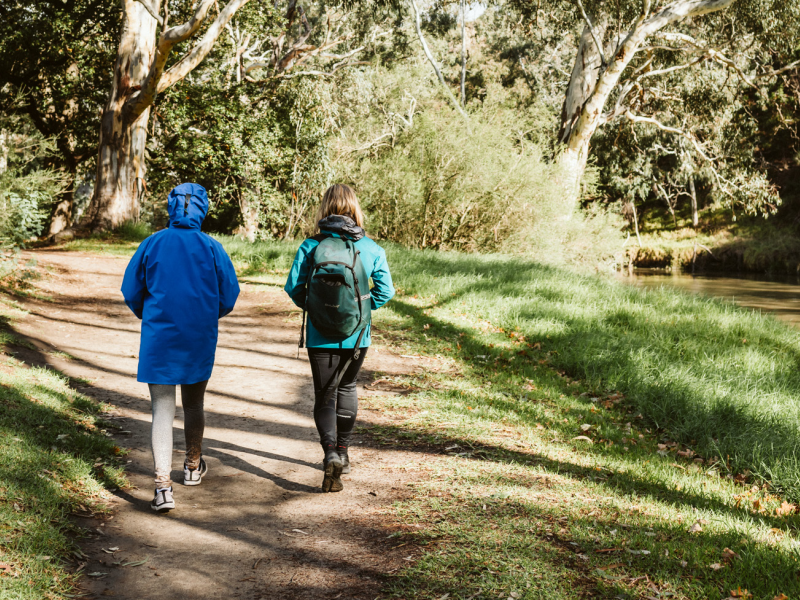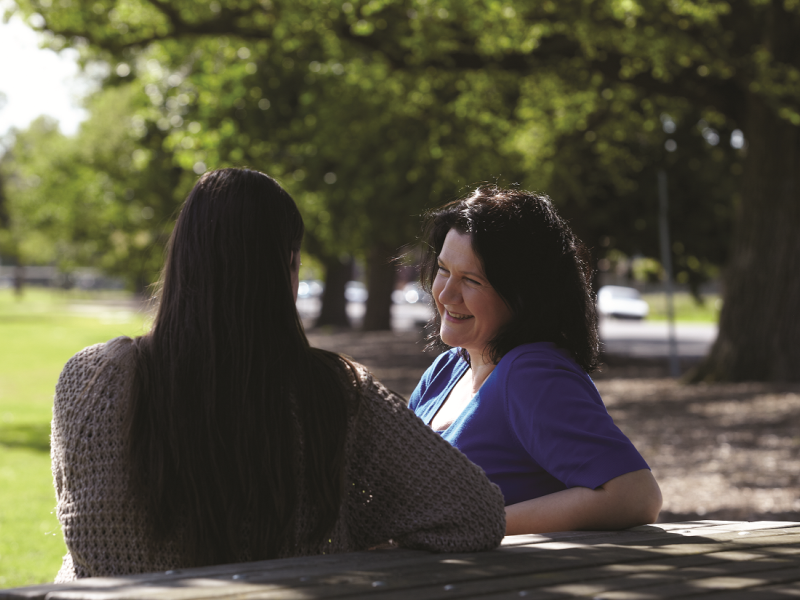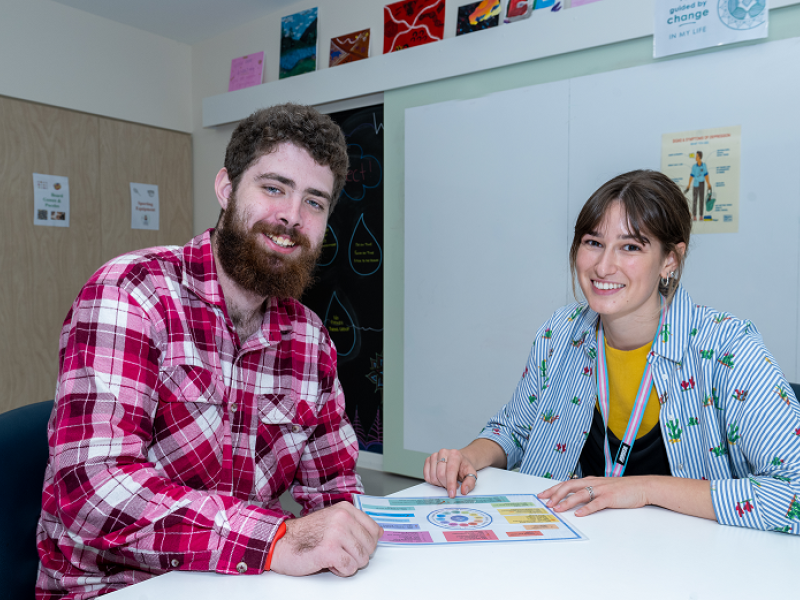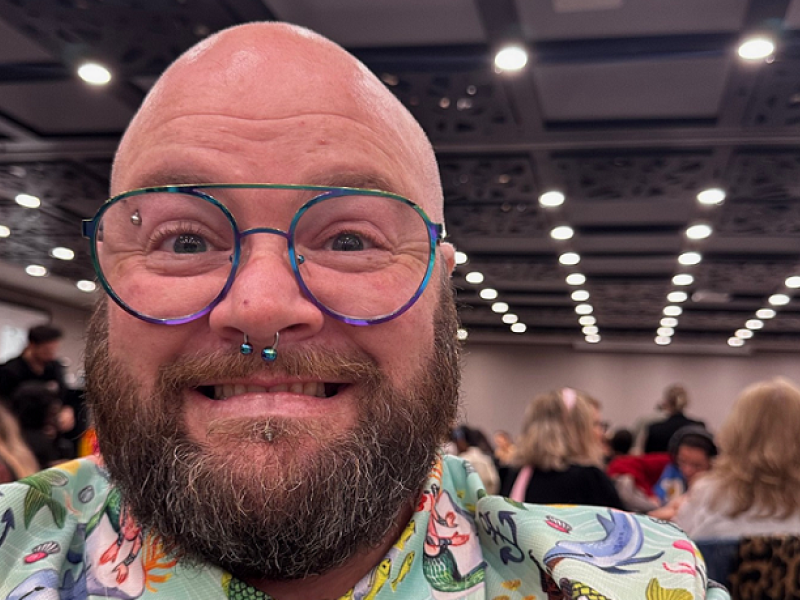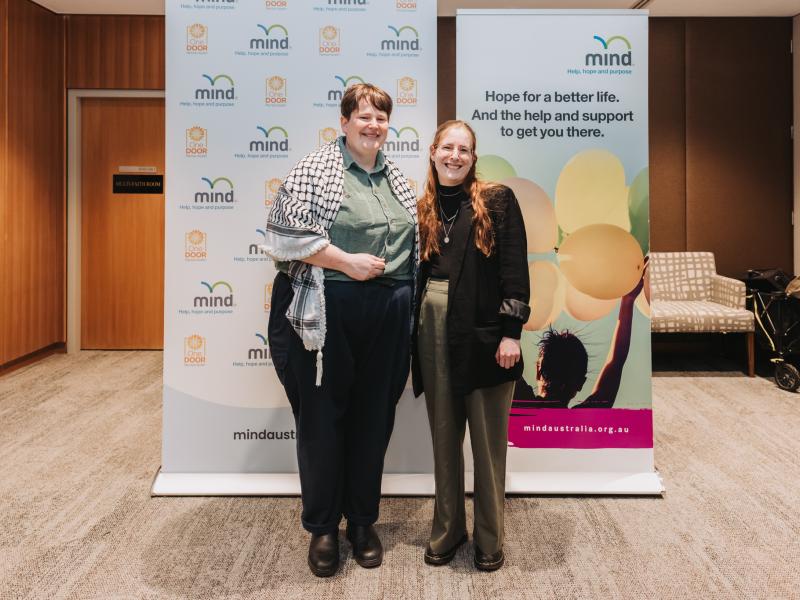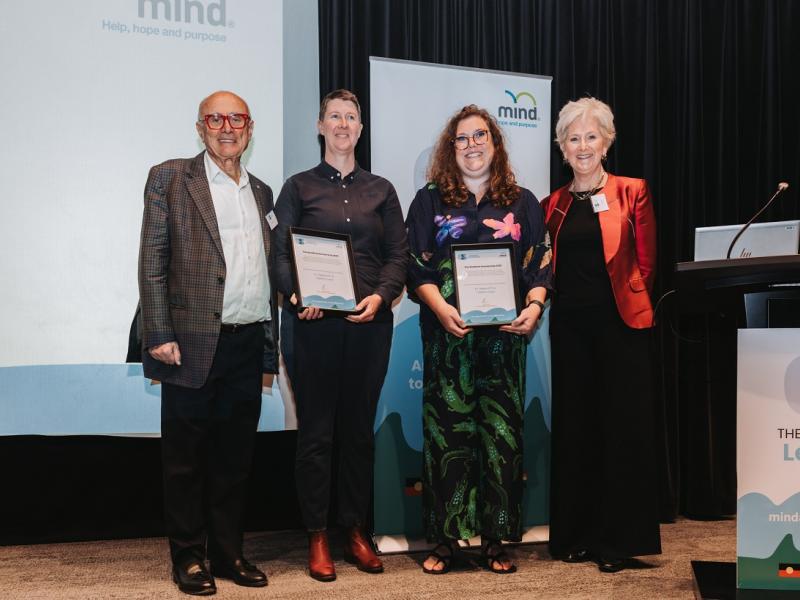At Mind Williamstown, clients are engaging with their mental demons by battling dragons and other mythical creatures. This support group plays Dungeons & Dragons – a fantasy role-playing board game that originated in the ‘70s. In this game, players create their own characters and together they embark on imaginary adventures within a fantasy setting.
Given it is universally recognised as the original role-playing game, it’s no surprise that Dungeons & Dragons is popular with Mind clients. So much so that there’s a waitlist just to play! One of the reasons it resonates with participants is the fact they can step out of their own skin and dive into a mythical land of magic in the company of friends.
“I like the role-playing aspect where you can be someone you’re not usually,” says Debby, a Mind client. “You can be a really strong person, not a person with issues. When you’ve got bad things happening in real life it’s nice to be able to play a game with a group of people and become someone really strong, someone who can solve problems.”
The group has even incorporated symptoms of mental ill-health into the game to help clients on their own recovery journeys. This particular format attributed a different form of ‘madness’ to each player, which would randomly strike within the game.
“The game doesn’t get easier when you’re suffering from a symptom,” Jess, another Mind client, explains. “It was more challenging because you had to take into consideration what type of ‘madness’ you had been struck with. It was interesting seeing all the different aspects and symptoms that came up – you don’t really consider that’s what happens to other people, so it was interesting to take a walk in someone else’s shoes. It was difficult but it gave us all perspective.”
Linda, another participant of the ‘madness’ campaign, also recognised the benefits of the Dungeons & Dragons adaptation as part of her own personal journey. “We all bring elements of ‘madness’ to the proverbial table. We are all on a journey of recovery, but we need to accept that our mental ill-health is part of our personalities and in that acceptance, we can find freedom,” she says.
You can learn more about Mind group recreation and leisure activities in your area by calling Mind Connect on 1300 286 463.
If this article raises concerns for you, please call Lifeline on 13 11 14. Aboriginal and Torres Straits Islanders can also call 13 YARN (13 92 76) a 24/7 national crisis support telephone service staffed by Aboriginal and Torres Strait Islander peoples.
If you would like more information, please contact us.
1300 286 463
[email protected]
